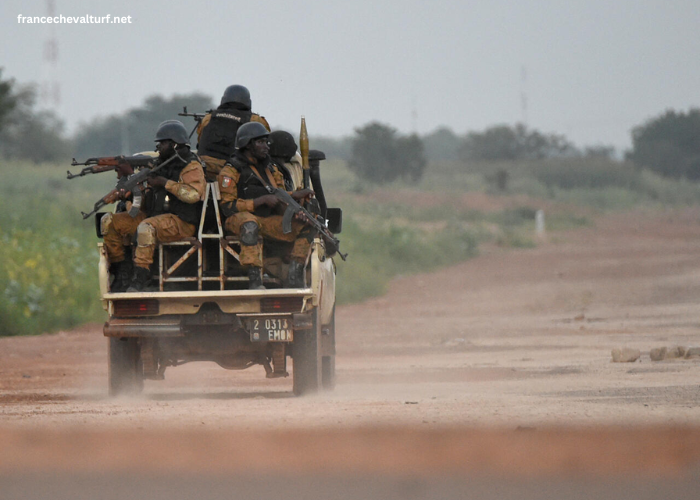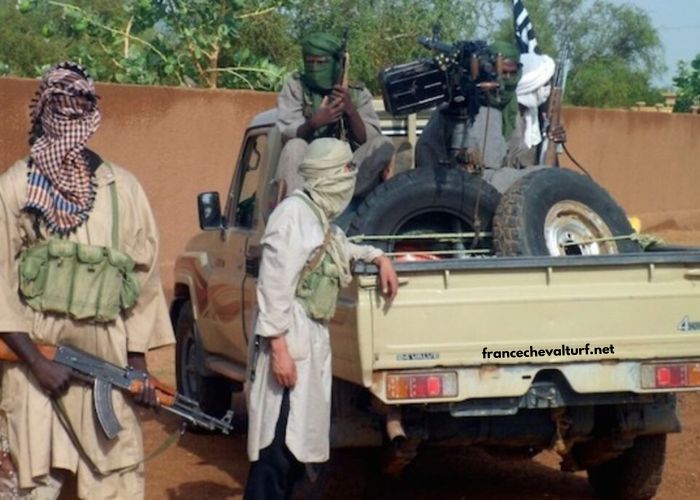The security situation in Burkina Faso has been a topic of growing concern in recent years, with ongoing attacks that have destabilized the nation. The Attaque Au Burkina Faso Aujourd’hui refers to the latest incidents affecting the country, which are part of a larger pattern of violence perpetrated by armed groups. These attacks have left many citizens in fear, and the government is working to respond to these challenges as they unfold. The Attaque Au Burkina Faso Aujourd’hui highlights the severity of the current security crisis, drawing attention to the vulnerability of the nation and the regional instability it fosters.
As the Attaque Au Burkina Faso Aujourd’hui continues to affect different areas of the country, it is important to understand the broader context of these attacks. Burkina Faso, located in the Sahel region of Africa, faces increasing threats from extremist groups operating in the region. The country’s struggle to maintain peace and security has resulted in a fragile situation, which is exacerbated by external and internal factors. The Attaque Au Burkina Faso Aujourd’hui sheds light on the ongoing struggle for stability and peace in this part of West Africa.
What Are The Causes Behind Attaque Au Burkina Faso Aujourd’hui?
The roots of the Attaque Au Burkina Faso Aujourd’hui are deeply tied to the broader issues facing Burkina Faso and the Sahel region. Burkina Faso has long struggled with poverty, weak governance, and political instability. These factors have created a fertile ground for extremist groups to thrive, including jihadist groups linked to Al-Qaeda and ISIS. The Attaque Au Burkina Faso Aujourd’hui is a result of these groups attempting to exploit the weak state apparatus, using violence to impose their ideologies and gain control over local resources and populations.
The Attaque Au Burkina Faso Aujourd’hui is also linked to the regional instability in the Sahel, where armed insurgents are operating across borders. Countries like Mali and Niger have been experiencing similar issues with jihadist groups, and these armed groups frequently cross into Burkina Faso, escalating the attacks. The porous borders in the region make it difficult for any one country to effectively combat these threats alone. As a result, the Attaque Au Burkina Faso Aujourd’hui is part of a larger web of regional conflict that affects the entire Sahel region.
How Are The Government And Military Responding To Attaque Au Burkina Faso Aujourd’hui?
The government of Burkina Faso is making concerted efforts to address the ongoing crisis brought about by the Attaque Au Burkina Faso Aujourd’hui. The Burkinabe military has been engaged in operations against the insurgents, attempting to secure key areas and prevent further violence. However, the effectiveness of these military efforts has been hampered by various challenges, including a lack of resources, insufficient training, and difficulty in gaining the trust of local communities. Despite these setbacks, the government continues to push forward with military actions to protect civilians and maintain the country’s sovereignty.
In addition to military responses, the government of Burkina Faso is also working on diplomatic and humanitarian fronts to address the impact of the Attaque Au Burkina Faso Aujourd’hui. The government has sought international assistance, including support from France, the United Nations, and neighboring African countries, to bolster security efforts and provide aid to displaced populations. However, the ongoing violence has made it increasingly difficult for international organizations to operate effectively, with many aid workers and citizens facing threats from the insurgents. The Attaque Au Burkina Faso Aujourd’hui presents a complex and multifaceted challenge that requires coordinated efforts at multiple levels.
What Is The Humanitarian Impact Of Attaque Au Burkina Faso Aujourd’hui?
The Attaque Au Burkina Faso Aujourd’hui has had a devastating humanitarian impact on the population. Thousands of people have been displaced from their homes, forced to flee to safer regions both within Burkina Faso and across its borders. Many of these displaced individuals face dire conditions, with limited access to food, clean water, and medical care. The humanitarian crisis exacerbated by the Attaque Au Burkina Faso Aujourd’hui is overwhelming aid agencies, who struggle to provide essential services amidst a backdrop of ongoing violence.
In addition to the displacement of people, the Attaque Au Burkina Faso Aujourd’hui has disrupted the country’s economy and infrastructure. Markets, schools, and healthcare facilities have been destroyed, making it difficult for residents to resume their normal lives. The destruction of vital infrastructure has not only hindered daily life but also increased the difficulty of providing aid and security. The Attaque Au Burkina Faso Aujourd’hui continues to pose significant challenges for humanitarian organizations working to support the people affected by the violence.
What Are The Long-Term Implications Of Attaque Au Burkina Faso Aujourd’hui?
The Attaque Au Burkina Faso Aujourd’hui has long-term implications for the future of Burkina Faso and the broader region. The escalation of violence threatens to destabilize the country even further, with the risk of extremist groups gaining more territory and influence. The Attaque Au Burkina Faso Aujourd’hui could lead to a protracted conflict that undermines the country’s political stability, economic development, and social cohesion. The long-term implications of these attacks include the potential for a continued humanitarian crisis, displacement, and the erosion of the state’s ability to govern effectively.
In addition, the Attaque Au Burkina Faso Aujourd’hui contributes to the broader regional instability in the Sahel. The situation in Burkina Faso is not isolated, as neighboring countries such as Mali and Niger are also facing similar challenges from armed groups. If the situation in Burkina Faso continues to deteriorate, it could have a spillover effect on the entire region, leading to more violence and instability in neighboring nations. The Attaque Au Burkina Faso Aujourd’hui is not just a national issue but a regional one that requires coordinated efforts to address the root causes of violence and instability in the Sahel.
What Role Do International Organizations Play In Addressing Attaque Au Burkina Faso Aujourd’hui?
International organizations play a critical role in addressing the Attaque Au Burkina Faso Aujourd’hui by providing humanitarian aid, technical assistance, and diplomatic support. Organizations such as the United Nations, the African Union, and the Economic Community of West African States (ECOWAS) are working to provide assistance to Burkina Faso during this time of crisis. These organizations help coordinate efforts to deliver aid, protect civilians, and support peacekeeping operations. However, their efforts are often hindered by the ongoing violence and security challenges posed by the insurgents.
The Attaque Au Burkina Faso Aujourd’hui also attracts attention from global powers like France, which has military forces stationed in the region to combat terrorism. France, alongside the European Union and other international partners, has been working to provide support to the Burkinabe government and help secure borders in the fight against extremist groups. While these efforts are important, they also raise questions about the effectiveness of external military interventions and the need for local solutions to address the root causes of the conflict. The Attaque Au Burkina Faso Aujourd’hui is a reminder of the importance of international cooperation in addressing security challenges in fragile states.
Conclusion
In conclusion, the Attaque Au Burkina Faso Aujourd’hui highlights the ongoing challenges faced by the country and the broader Sahel region. The violence has displaced thousands, disrupted the economy, and created a humanitarian crisis that continues to escalate.
While the government and military are taking steps to address the situation, the Attaque Au Burkina Faso Aujourd’hui underscores the need for international support and a long-term strategy to address the root causes of instability. Without comprehensive efforts to restore security and stability, the country may continue to face challenges that affect not only Burkina Faso but the entire region.




